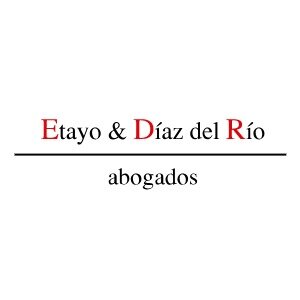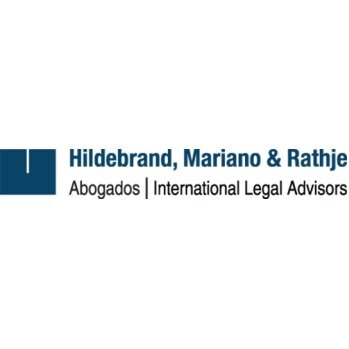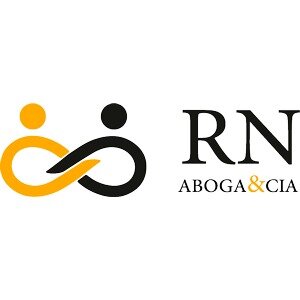Best Renewable & Alternative Energy Lawyers in Seville
Share your needs with us, get contacted by law firms.
Free. Takes 2 min.
List of the best lawyers in Seville, Spain
About Renewable & Alternative Energy Law in Seville, Spain
Renewable and alternative energy refers to sources of power that are naturally replenished and less harmful to the environment than conventional fossil fuels. Common examples include solar, wind, biomass, and hydropower. In Seville, Spain, the commitment to sustainable energy is particularly strong, thanks to the region’s abundant sunshine and supportive governmental policies. Renewable energy law in Seville is shaped by both Spanish national regulations and directives from the European Union. The legal framework encompasses everything from authorizations and permits to incentives, connections to the electrical grid, and environmental compliance. Whether you are a business, homeowner, or investor, understanding the local legal landscape is crucial for success in the renewable energy sector.
Why You May Need a Lawyer
Navigating the renewable and alternative energy market often involves complex legislation and regulations. Here are some common situations where seeking legal assistance can be beneficial:
- Obtaining permits and licenses for installing solar panels or wind turbines
- Ensuring compliance with local environmental and safety regulations
- Drafting and reviewing contracts for energy purchase or supply
- Negotiating with energy providers or authorities regarding grid connections
- Addressing disputes over land use or property rights for energy installations
- Securing financial incentives, subsidies, or tax benefits
- Handling mergers, acquisitions, and joint ventures in the energy sector
- Managing intellectual property and technology rights for innovative energy solutions
A qualified lawyer can guide you through documentation, ensure your project adheres to all legal requirements, and represent your interests before authorities or in court if necessary.
Local Laws Overview
In Seville, renewable and alternative energy is primarily governed by a mixture of Spanish state legislation, Andalusian regional laws, and European Union directives. Some key aspects include:
- Permitting and Licensing - Renewable energy projects generally require prior administrative authorization, environmental assessments, and compliance with urban planning rules.
- Grid Connection - Procedures are in place to connect renewable installations to the local electricity network, with specific regulations on capacity and security of supply.
- Incentives and Subsidies - Financial support schemes such as feed-in tariffs, grants, and tax credits are offered at both national and regional levels to promote renewable energy.
- Self-Consumption - Individuals and businesses are allowed to generate their own electricity, including surplus energy sales back to the grid, subject to registration and reporting requirements.
- Environmental Protection - Projects must comply with environmental impact regulations, especially where installations may affect protected natural spaces or species.
- Urban Planning - City councils in the Province of Seville may have additional rules for integrating renewable energy infrastructure into cityscapes or rural areas.
Due to the dynamic nature of this field, laws and incentives can change frequently, making it essential to consult updated legal sources.
Frequently Asked Questions
What types of renewable energy are most common in Seville?
Solar energy is the most prevalent due to Seville’s high levels of sunshine, followed by wind and some biomass projects.
Can homeowners install solar panels without a license?
Small-scale residential installations usually require notification or a simple permit from the local council, while larger or collective systems may need specific authorizations.
Are there financial incentives for installing renewable energy systems?
Yes, various grants, tax deductions, and subsidies are available from both national and regional authorities, though eligibility criteria must be met.
Is it possible to sell surplus electricity back to the grid?
Yes, but you must register as a self-consumer with surplus and sign necessary agreements with your electricity provider.
How are environmental impacts of energy projects assessed?
Projects may require an Environmental Impact Assessment (EIA), particularly for larger installations or those near protected areas.
What legal documents are necessary to start a solar project?
Key documents include administrative authorizations, environmental clearances, grid connection agreements, and, in some cases, urban planning approvals.
Do renewable energy installations affect property taxes?
In some cases, installing renewable systems can provide tax reductions or exemptions, but this varies by region and should be checked with your local tax authority.
Can communities or associations invest collectively in renewable projects?
Collective self-consumption and energy communities are recognized under Spanish law, allowing groups to jointly own and operate installations.
What kind of disputes are common in the renewable energy sector?
Typical disputes involve land use, contract interpretation, delayed grid connections, and disagreements over incentive payments.
Is legal advice necessary for small projects?
Even for small projects, legal consultation is recommended to avoid administrative issues and ensure full compliance with all obligations.
Additional Resources
If you are seeking more information or support, the following organizations and governmental bodies can be very helpful:
- Andalusian Energy Agency (Agencia Andaluza de la Energía) - Supports energy efficiency and renewable projects in Andalusia
- Ministry for the Ecological Transition and the Demographic Challenge (MITECO) - Oversees national energy and environmental policy
- Seville City Council (Ayuntamiento de Sevilla) - Provides permits and information on local regulations and incentives
- IDAE - Institute for Energy Diversification and Saving (Instituto para la Diversificación y Ahorro de la Energía) - Offers technical guidance and funding information
- Spanish Photovoltaic Union (UNEF) - Represents the solar sector and offers industry support
- Business Associations - Local renewable energy clusters and business groups provide legal and technical advice for members
Next Steps
If you are considering a renewable or alternative energy project in Seville, Spain, or need help with an existing matter, consider taking the following steps:
- Document your project goals and gather any relevant technical and property documents
- Consult official resources for the latest regulations or incentives applicable to your case
- Seek out a qualified lawyer or legal firm specializing in renewable energy law in Seville
- Arrange an initial meeting to discuss your objectives and obtain an assessment of your legal needs
- Follow legal advice to apply for all necessary permits, contracts, and registrations
- Maintain organized records of communications and authorizations for future reference
Proper legal guidance can streamline your project, reduce risk, and help you maximize available incentives, ensuring your renewable energy investment in Seville is both compliant and successful.
Lawzana helps you find the best lawyers and law firms in Seville through a curated and pre-screened list of qualified legal professionals. Our platform offers rankings and detailed profiles of attorneys and law firms, allowing you to compare based on practice areas, including Renewable & Alternative Energy, experience, and client feedback.
Each profile includes a description of the firm's areas of practice, client reviews, team members and partners, year of establishment, spoken languages, office locations, contact information, social media presence, and any published articles or resources. Most firms on our platform speak English and are experienced in both local and international legal matters.
Get a quote from top-rated law firms in Seville, Spain — quickly, securely, and without unnecessary hassle.
Disclaimer:
The information provided on this page is for general informational purposes only and does not constitute legal advice. While we strive to ensure the accuracy and relevance of the content, legal information may change over time, and interpretations of the law can vary. You should always consult with a qualified legal professional for advice specific to your situation.
We disclaim all liability for actions taken or not taken based on the content of this page. If you believe any information is incorrect or outdated, please contact us, and we will review and update it where appropriate.












